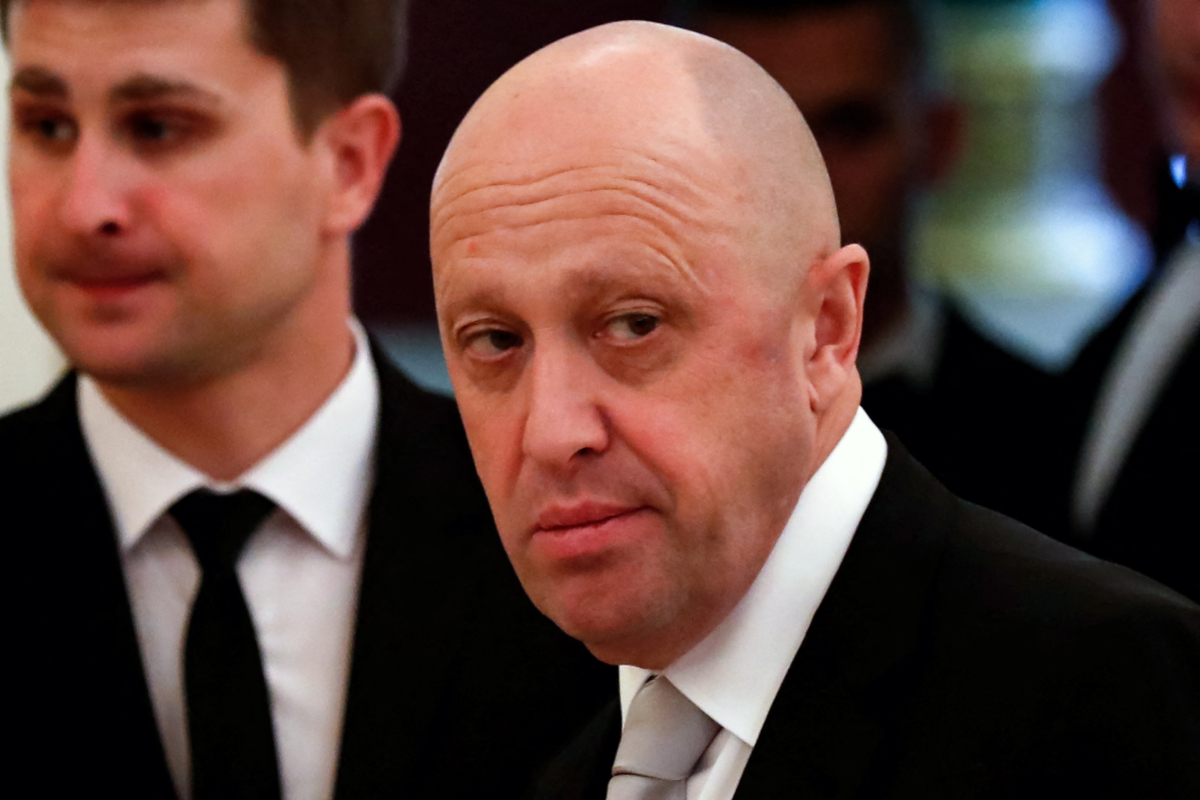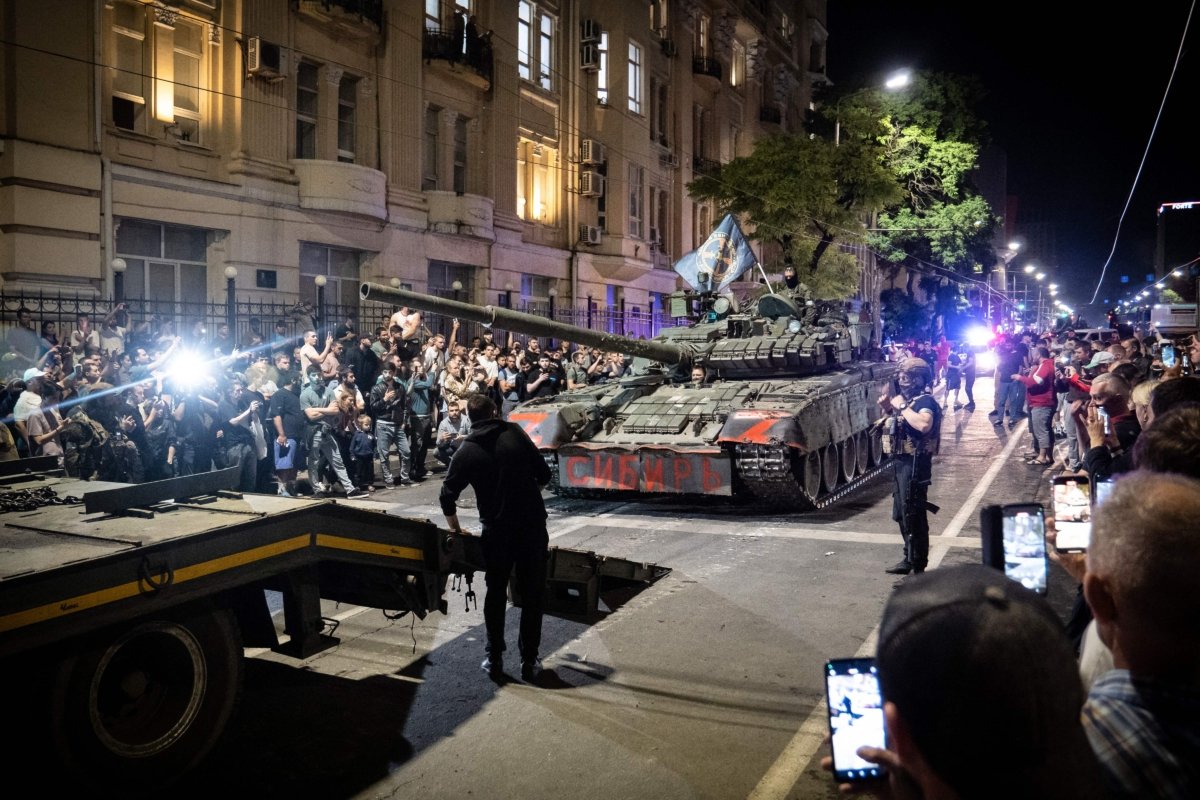Why We Should Not Be Diverted by the Wagner Comic Opera
Commentary
Military mutinies vary in nature and scope, but they can provide stimulus or course correction for the forces that suffer from them.
Moscow carefully managed the brief mutiny (June 23–25) of its Wagner Group of contractor military fighters in Ukraine and had been working to bring to a head Wagner’s quasi-independent status.
The path was cleared for Wagner units to exit Ukraine and enter Rostov-on-Don unopposed. Significantly, this was about money: Yevgeny Prigozhin’s lucrative contract.
The Russian Armed Forces, with the end of the Wagner gesture, now have a more unified approach to the Ukraine battlefield. Wagner units, which showed greater efficiency than the Russian Ground Forces, had significantly contributed to stabilizing some of the fronts against the Ukrainian forces. Still, it was clear that the cost-benefit ratio of maintaining a separate battlefield command was now not in Wagner’s favor.
Moscow had hoped to avoid the predictably futile gesture of a “mutiny” by Wagner chief Prigozhin, but this was not a mutiny within the Armed Forces. It was as if, for example, U.S. military contractor Blackwater had “gone rogue” during operations in Iraq. Historically, mercenary groups often are at odds with their client governments, usually over pay and conditions.
Indeed, the U.S. government quietly suppressed Blackwater after its urgent need for an independent operator in Iraq ended. That was a messy affair but ultimately did not degrade the overall strategic thrust of U.S. forces.
Prigozhin, like Blackwater chief Erik Prinz at the end of his relationship with Washington, knew that his government’s need for him was coming to an end.
His cash flow was about to be dramatically curtailed.
Wagner Group had grown rich and entitled from its significant contracts from the Russian government for operations in Syria, Libya, Mali, the Horn of Africa, and, more recently, Ukraine. But recently, the Russian government had insisted that Wagner employees—fighters—sign contracts with the Ministry of Defense by July 1. That spelled the end of Wagner’s independence and the contract it held, which had made Prigozhin a wealthy man. He said he would resist that order.

Media reporting, and some “professional” speculation in Washington and among U.S. allies, indicated that the Wagner protest was something of strategic importance, spelling the end of the Vladimir Putin presidency in Russia. It was not.
Putin does face difficulties on many fronts, but he handled the Prigozhin “speed bump” with ease. Prigozhin had won great success based on his friendship with Putin, but he had embarrassed Putin by staying too long at the feast. He was lucky to have negotiated an exit on “honorable terms”: retirement in Belarus.
It is clear that the Wagner mutiny was not even of the same importance as the mutiny on the Russian battleship Potemkin in June 1905. That was a peacetime mutiny by members of the actual Armed Forces.
More important was the relatively peaceful 1918-19 Royal Navy mutiny, protesting deployment to the Baltic, or the 1931 Invergordon Royal Navy mutiny by about 1,000 sailors. These were serious because they violated explicit oaths of loyalty by serving military members, just like the even more serious mutiny of 100,000 French troops, near the Western Front, in 1917, at a critical time in World War I.
And none of these mutinies ruffled the feathers of the ultimately victorious forces, which played host to the mutinies.
More strategically important was the Indian Mutiny—the Sepoy Mutiny—of 1857–59. This was specifically a war of political dimension intended to overthrow the British rule of India and not an internal military mutiny. And that, too, failed.
So what now?
Firstly, the Russian Armed Forces would likely integrate Wagner contractors into the formal military or into separate units directly controlled by the Ministry of Defense. It is probable that this, too, will come alongside some introspection over Russian inefficiencies in the military supply chain, and this could focus attention even more on the performance of Russian Defense Minister Sergei Shoigu.
Secondly, Russia will streamline operations in Ukraine and undertake a renewed military push, possibly after some initial setbacks in the areas formerly held by Wagner.
Western analysts have been consistently keen to demonize Putin and predict his early departure. Wishful thinking is never good policy analysis. Assassinations and illness are always the wild cards. But the Wagner episode was a mutiny in a teacup.
Views expressed in this article are the opinions of the author and do not necessarily reflect the views of The Epoch Times.




